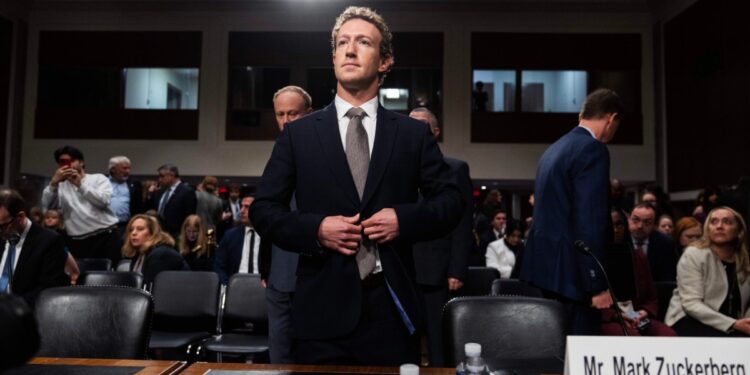On Tuesday, the New York Times reported that one of the world’s richest men had recently experienced a major epiphany. After bankrolling a political organization that supported immigration reform, espousing his support for social justice, and donating hundreds of millions of dollars to support local election workers during the 2020 election, “Mark Zuckerberg is done with politics.”
The Facebook founder and part-time Hawaiian feudal lord, according to the piece, “believed that both parties loathed technology and that trying to continue engaging with political causes would only draw further scrutiny to their company,” and felt burned by the criticism he has faced in recent years, on everything from the proliferation of disinformation on Facebook to his investment in election administration (which conservatives dismissively referred to as “Zuckerbucks”). He is mad, in other words, that people are mad at him, and it has made him rethink his entire theory of how the world works.
It’s an interesting piece, which identifies a real switch in how Zuckerberg—who along with his wife, Priscilla Chan, has made a non-binding pledge to give away a majority of his wealth by the end of his lifetime—thinks about his influence and his own ideology. But there’s a fallacy underpinning that headline: Zuckerberg isn’t done with politics. His politics have simply changed.
Like a lot of unfathomably wealthy people who have the resources to harvest their own beef, Zuckerberg now reportedly considers himself a “libertarian.” He has spent a lot of time in recent years attempting to cultivate a personal brand as a sort of happy-go-lucky #GirlDad. His new politics are not as ominous or viscerally off-putting as the red-pilled divorced energy of Elon Musk. But they are a politics. Deciding that you no longer want to advocate for a path to citizenship as part of comprehensive immigration reform is as political as the act of advocating for it was. Responding to years of conspiracy theories and personal attacks from conservative politicians by cultivating closer relationships with them is a political tactic. According to the report, Zuckerberg twice talked to Donald Trump by phone this summer, while his new Republican political attache has sought to reassure the ex-president that Zuckerberg has no plans to spend money shoring up election infrastructure this year. It does not really get more political than a pleasant phone call with a man who tried a coup.
Zuckerberg’s efforts to discourage political activism among Meta employees (per the piece) mirror his own efforts to discourage political content on the platforms he controls, such as Facebook and Instagram. Attempting to mute or disincentivize political speech is, of course, a political act, and it betrays an ominous worldview. In that sense, at least, he and Musk aren’t so different; they’re collectively building a “digital public square” where you can find everything but reported, factual news. Zuckerberg has made it clear that he is frustrated with specific kinds of political speech—including criticism of him.
The truth is there is no such thing as an apolitical oligarch. Zuckerberg’s fortune came from a monopolistic enterprise that’s been used to foment ethnic cleansing and collectively unlearn a century-and-a-half of germ theory. His wealth is sustained and protected by political structures, and his spending and strategic priorities can make or break communities, newsrooms, and democratic norms. When he puts his foot down, you notice it. But when he lifts his foot up, you notice that too.







